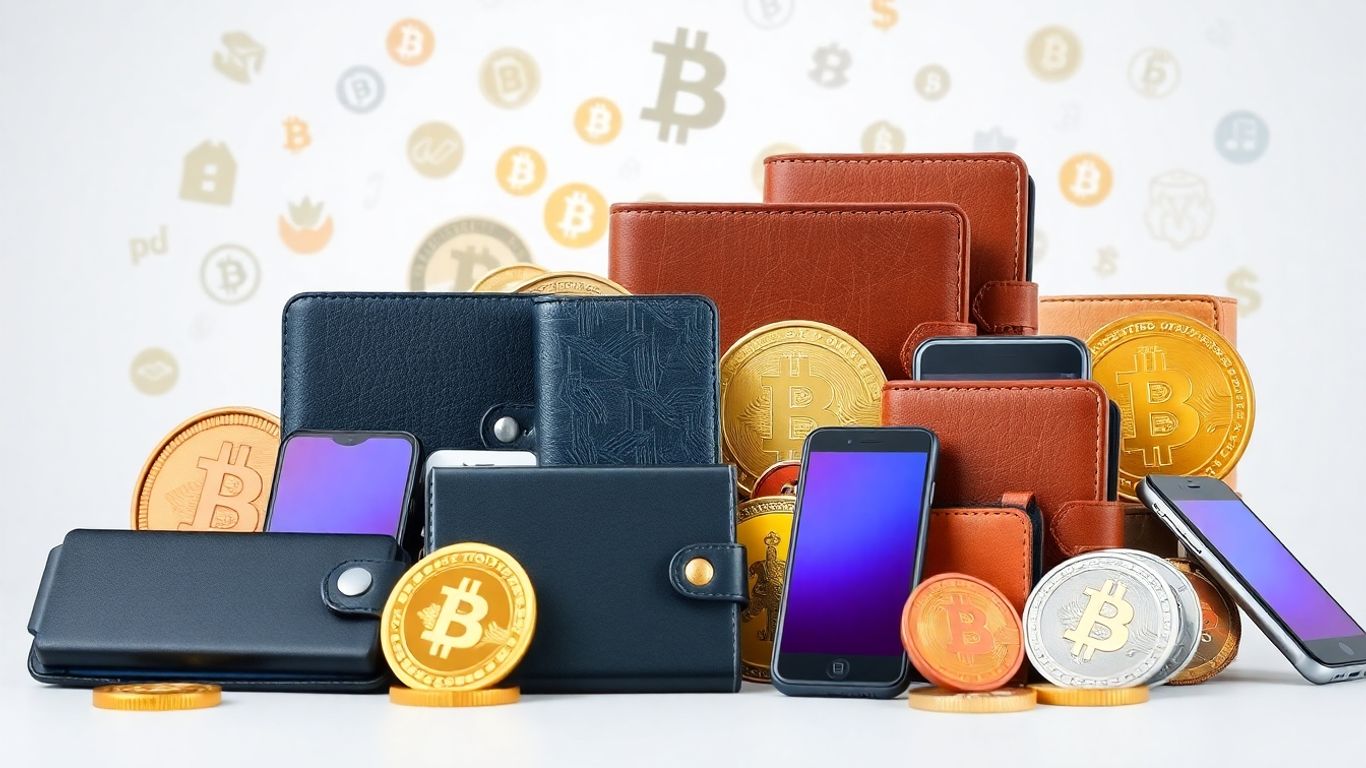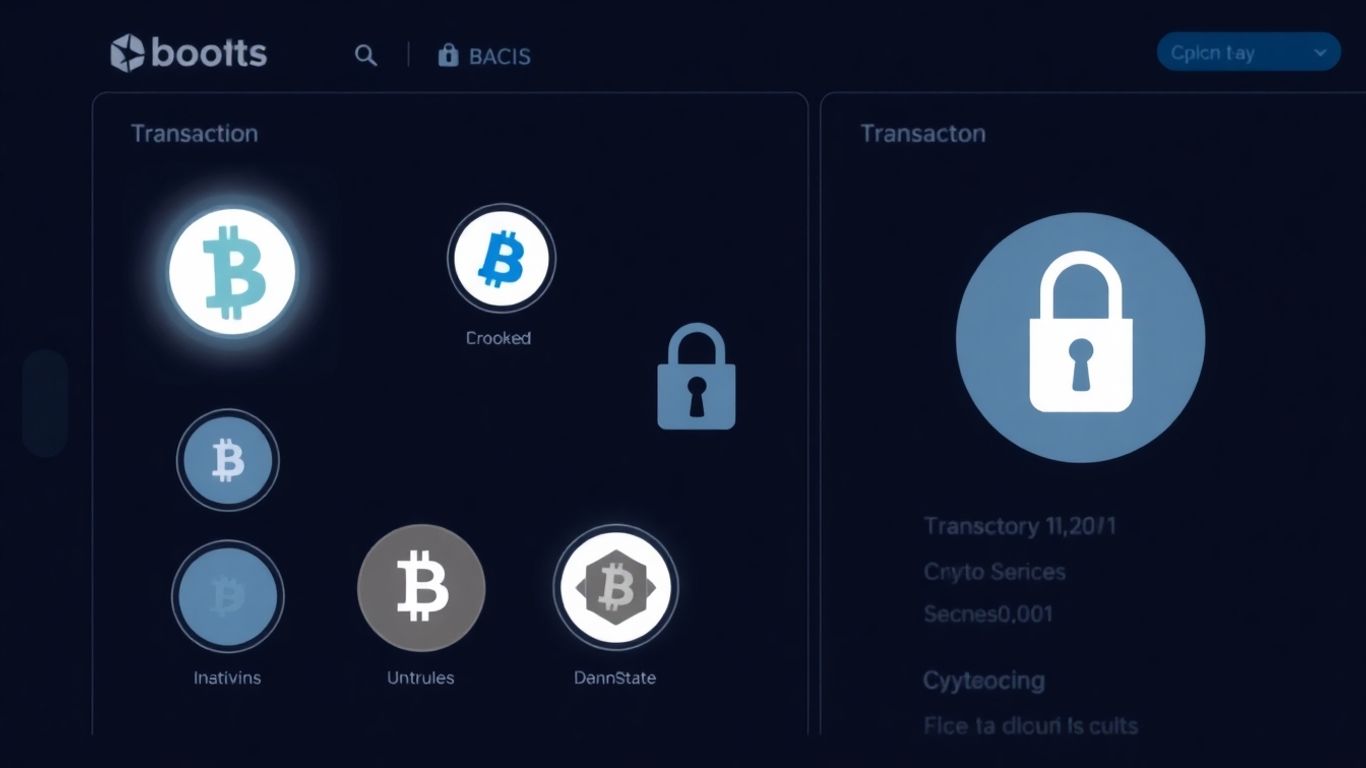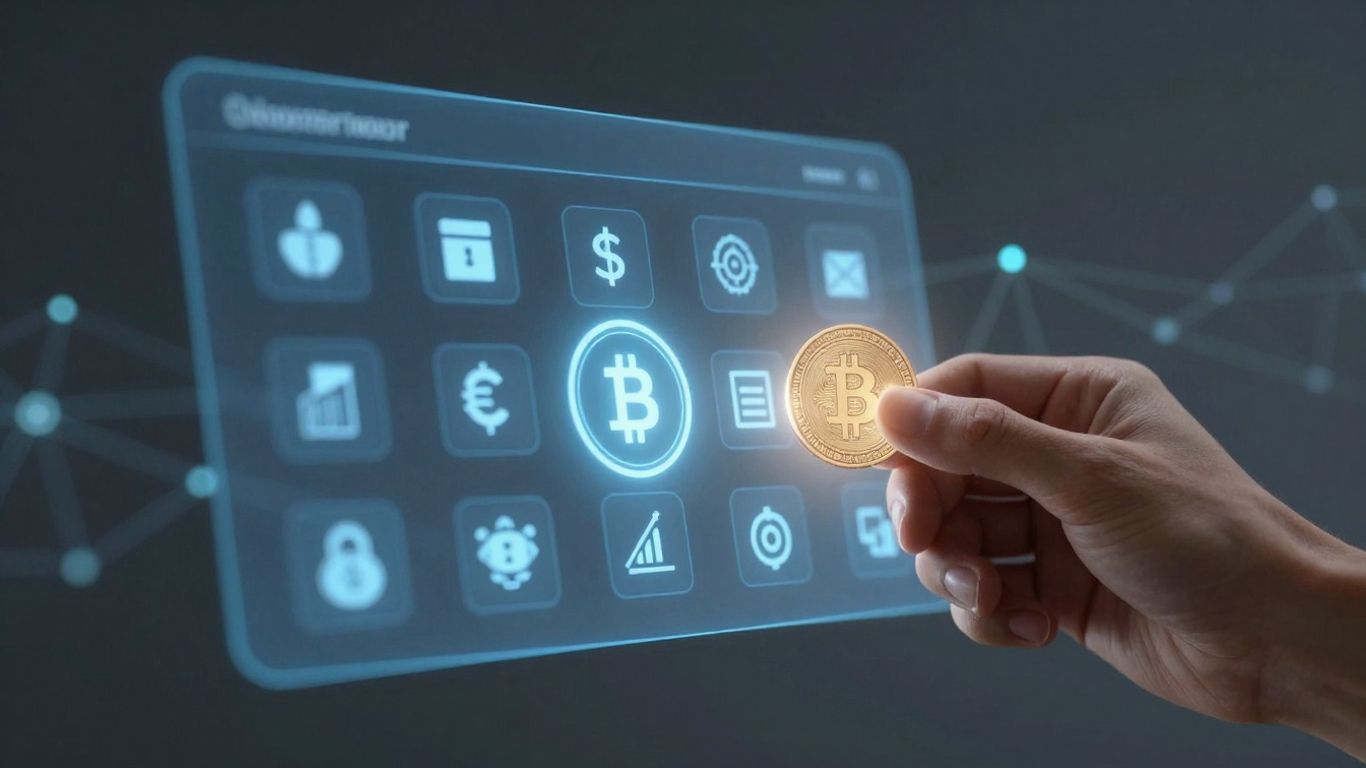[ newsletter ]
Stay ahead of Web3 threats—subscribe to our newsletter for the latest in blockchain security insights and updates.
Thank you! Your submission has been received!
Oops! Something went wrong. Please try again.
Find the crypto wallet best buy with our guide. Compare features, security, and top recommendations for your digital assets.





So, you're thinking about getting into crypto and need a place to keep your digital money safe. It can feel like a lot to figure out, right? There are tons of options out there, from apps on your phone to special physical devices. Finding the crypto wallet best buy for you is pretty important. This guide will help break down what you should think about and look at some popular choices to help you make a good choice.
So, you're diving into the world of cryptocurrency, and that's pretty exciting. But before you just grab the first wallet you see, let's take a moment to figure out what you actually need. It's not really a one-size-fits-all situation, you know? Think of it like picking a tool – you wouldn't use a hammer to screw in a bolt, right? Same idea here. Your wallet is your main way to interact with your digital assets, so getting it right from the start can save you a lot of hassle later on.
How often do you plan on moving your crypto around? This is a pretty big question that really shapes your choice. If you're someone who likes to buy, sell, or swap coins pretty regularly, maybe even daily, you'll want something that's quick and easy to access. A 'hot wallet,' which is always connected to the internet, usually fits this bill. They're often free and super convenient for day-to-day transactions. On the flip side, if you're more of a 'buy and hold' type, planning to keep your crypto for months or even years, you might not need that instant access. You might be perfectly fine with something that takes an extra step or two to get to, especially if it means better security.
Here's a simple way to think about it:
This is a really important part. Crypto can be a bit of a wild west, and unfortunately, there are people out there looking to take advantage. Your wallet is basically your digital vault, and you need to think about how it protects your private keys. These are the secret codes that give you access to your crypto. If someone gets those, they can take everything you have stored. Some wallets are much better than others at keeping those keys safe. Things like multi-factor authentication (where you need more than just a password to log in), secure enclaves (special protected areas on your device), and offline storage are all good signs. You really don't want to skimp on security, especially if you plan on holding a significant amount of crypto.
The primary job of any wallet is to keep your digital assets safe. If a wallet has a history of security problems or hasn't been properly checked by outside experts, it's probably best to avoid it, no matter how many features it has.
This is another big one. What coins do you actually plan on holding or trading? Some wallets are super specialized, like only handling Bitcoin or Ethereum and its related tokens. Others are much broader, supporting dozens or even hundreds of different cryptocurrencies and various blockchain networks. If you're just starting out with Bitcoin, a Bitcoin-only wallet might be fine. But if you think you might want to dabble in altcoins or NFTs later on, you'll need a wallet that can handle that. It's way easier to pick a wallet that supports what you need now and what you might need in the future, rather than having to switch wallets down the line. It's always a good idea to check the list of supported assets before you commit to a wallet.

So, you've decided to get into crypto, which is awesome. But now you need a place to stash your digital coins, and let me tell you, there are options. It’s not just one kind of wallet; they’re all a bit different, and what works for your buddy might not be the best fit for you. Think of it like choosing a car – you wouldn't get a sports car if you needed to haul lumber, right? Same idea here. We've got a few main categories to look at.
These are wallets that are connected to the internet. Think of them like your everyday checking account – easy to access for quick transactions. Most software wallets that you download onto your phone or computer, or even web-based wallets you access through a browser, fall into this category. They're super convenient if you're trading often or using decentralized applications (dApps). Because they're online, they're generally easier to set up and use for daily crypto activities. However, this constant connection also means they're more vulnerable to online threats. It's like leaving your front door unlocked when you're home – convenient, but not the most secure if someone's trying to get in.
Now, if you're planning to hold onto your crypto for a while – like, years – a cold wallet is probably what you want. These wallets are kept offline, completely disconnected from the internet. The most common types are hardware wallets, which look like USB drives, and paper wallets, which are literally just a piece of paper with your public and private keys printed on them. Keeping your crypto offline is the gold standard for security. Because they aren't connected to the internet, they're much harder for hackers to access. It’s like putting your valuables in a bank vault instead of leaving them on your kitchen counter.
When choosing between hot and cold storage, consider your primary goal. If you're actively trading or using dApps, a hot wallet offers the necessary speed. If you're investing for the long haul and prioritizing asset protection above all else, a cold wallet is the way to go.
Paper wallets are a bit of a throwback, but they still have their place, especially if you're looking for maximum offline security without buying a hardware device. Basically, you generate a pair of keys – a public key (like your bank account number, which you can share) and a private key (like your PIN, which you never share) – and print them out. This paper is your wallet. You can send crypto to your public address, and to spend it, you'll need to import your private key into a hot wallet or use a special tool. It’s a very secure method against online attacks, but it’s also quite cumbersome to use and the paper itself is fragile. You really need to keep it somewhere safe and dry. For most people today, hardware wallets offer a more user-friendly way to achieve similar offline security. You can discover the diverse world of cryptocurrency wallets to get a better feel for the options available here.

So, you've looked at the different types of wallets and maybe even narrowed down a few options. That's great! But before you click that 'buy' button or download that app, let's talk about what really matters when picking the best crypto wallet for your needs. It's not just about what looks cool or what your friend uses. You've got to think about a few things to make sure your digital money stays safe and accessible.
First off, does the wallet actually support the coins you want to hold or trade? Some wallets are built for specific blockchains, like Bitcoin or Ethereum, while others are more general. If you're planning to diversify your portfolio with various altcoins, you'll need a wallet that can handle them all. Trying to use a wallet that doesn't support a particular coin is just a recipe for frustration, and sometimes, you can even lose access to your funds if you send them to an unsupported address. It's like trying to put diesel in a gasoline car – it just won't work.
Security is obviously a huge deal in the crypto world. You want to know that the wallet you choose has been vetted by security experts. Many reputable wallets undergo regular security audits by independent third-party firms. These audits check for vulnerabilities and weaknesses in the wallet's code. A wallet that has passed these audits and has good ratings from security researchers is generally a safer bet. Don't just take the company's word for it; look for proof that they've had their security checked out.
When a wallet has undergone independent security audits, it means external experts have thoroughly examined its code for potential flaws. This process helps identify and fix vulnerabilities before they can be exploited by malicious actors, giving you more confidence in the wallet's ability to protect your assets.
What happens when something goes wrong? Or when you're just not sure how to do something? Good customer support can be a lifesaver. Look for wallets that offer responsive support, whether it's through live chat, email, or a ticketing system. Beyond direct support, many wallets also provide extensive educational resources, like FAQs, tutorials, and blog posts. These can be incredibly helpful, especially if you're new to crypto, helping you understand how to use the wallet safely and effectively.
Alright, so you've thought about what you need, and now it's time to look at some actual wallets. It can be a bit overwhelming with so many choices, but we've narrowed down a few popular ones that people seem to like for different reasons. Think of this as a starting point, not the final word, because what's best for your buddy might not be best for you.
Exodus is a solid pick if you're managing a bunch of different crypto assets. It supports over 50 blockchain networks, which is pretty good, and you can even swap your crypto right inside the app. It also plays nice with Trezor hardware wallets if you decide to go that route later. People generally find it easy to use across different devices, and it gets good marks for security. The only minor downsides are that you don't have much say over the exact transaction fees, and it hasn't had many third-party security checks.
Exodus is often praised for its clean design and how it handles a wide variety of coins, making it a good all-rounder for many users.
If you're interested in the world of decentralized applications (DApps) and the broader Web3 space, MetaMask is a very popular choice. It's a browser extension and mobile app that lets you interact with these new platforms easily. It's great for managing your digital identity and assets within these ecosystems. However, it's primarily a hot wallet, so while convenient, it's not the top choice for storing large amounts of crypto long-term.
Trust Wallet is a good option if you do most of your crypto management on your phone. It's known for its mobile-first design, making it pretty straightforward to use for everyday transactions and exploring different tokens. It supports a wide range of cryptocurrencies and has features for staking and accessing DApps directly from the app. It's a non-custodial wallet, meaning you control your private keys.
When you're talking about serious security for holding crypto over the long haul, hardware wallets are the way to go. These are physical devices that store your private keys offline, making them much harder for hackers to access.
Both Ledger and Trezor require you to keep a recovery phrase safe, which is your backup if you lose the device. These are generally considered the gold standard for securing significant amounts of cryptocurrency.
So, you've looked at the different types of wallets and maybe even narrowed down a few options. That's great! But before you click that 'buy' button or download that app, let's talk about what really matters when picking the best crypto wallet for you. It's not just about which one looks the coolest or has the most coins listed.
Let's be real, crypto can be confusing enough without a wallet that looks like it was designed by a rocket scientist. If you're new to this, you probably want something straightforward. A clean layout, clear instructions, and simple buttons for sending and receiving are key. If you're going to be using your wallet with other apps, like for NFTs or decentralized finance (DeFi), you'll want to make sure it connects easily. Nobody wants to spend hours figuring out how to link their wallet to a new platform.
Here's a quick look at what to consider:
Choosing the right wallet from the start can save you a lot of headaches down the line. It's worth taking a bit of time to figure out what fits your crypto journey best.
Most software wallets, like mobile or browser extensions, are usually free to download and use. That's a big plus when you're just starting out or don't want to spend extra cash. However, some advanced features or premium versions might come with a fee. Hardware wallets, on the other hand, are physical devices, and they definitely cost money. Prices can range from around $50 to over $200, depending on the brand and the features it offers. Think about how much crypto you plan to store and for how long. If you're holding a significant amount, the cost of a hardware wallet might be a worthwhile investment for the extra security it provides.
This is a big one. What coins do you actually plan on holding or trading? Some wallets are super specialized, like only handling Bitcoin or Ethereum and its related tokens. Others are much broader, supporting dozens or even hundreds of different cryptocurrencies and various blockchain networks. If you're just starting with Bitcoin, a Bitcoin-only wallet might be fine. But if you think you'll want to dabble in altcoins or NFTs later on, you'll need a wallet that can handle that. It's way easier to pick a wallet that supports what you need now and what you might need in the future, rather than having to switch wallets down the line.
It's easy to get caught up in the features and the hype, but remember that the primary job of a wallet is to keep your assets safe.
So, you've gone through the different types of wallets and figured out what features matter most for you. Whether you're just dipping your toes into crypto with a simple mobile app like Coinbase Wallet or Trust Wallet, or you're planning to hold a lot of digital assets long-term and need the security of a hardware wallet like Ledger or Trezor, the key is to pick what fits your needs. Remember, keeping your private keys safe is the most important part, no matter which wallet you choose. It might seem like a lot at first, but taking the time to find the right wallet will save you headaches down the road. Happy crypto adventures!
A crypto wallet is like a special digital purse or safe for your digital money, such as Bitcoin. It lets you send, get, and keep your digital coins secure. Think of it as your personal key to manage your crypto.
A 'hot' wallet is connected to the internet, like an app on your phone or a website. It's handy for when you trade often. A 'cold' wallet is kept offline, like a special USB drive, and is super safe for storing your crypto for a long time, away from online risks.
Think about how often you plan to trade and how much security you want. If you trade a lot, a hot wallet might be good. If you're saving for a long time, a cold wallet is safer. Also, consider how easy it is to use and what types of digital money it supports.
Keeping your digital money safe is super important. You should look for wallets that have been checked by outside experts, like through security audits. Also, see what security features the wallet itself offers, such as ways to protect your login.
Good wallets offer help! Check if the company provides easy ways to get in touch if you have problems. Many also have helpful guides, videos, or tutorials to teach you how to use the wallet safely and effectively.
Yes, some wallets are made to be easier for people just starting out. They often have simple instructions and a clean look. Wallets like Coinbase Wallet or Trust Wallet are often recommended for beginners because they are user-friendly.


